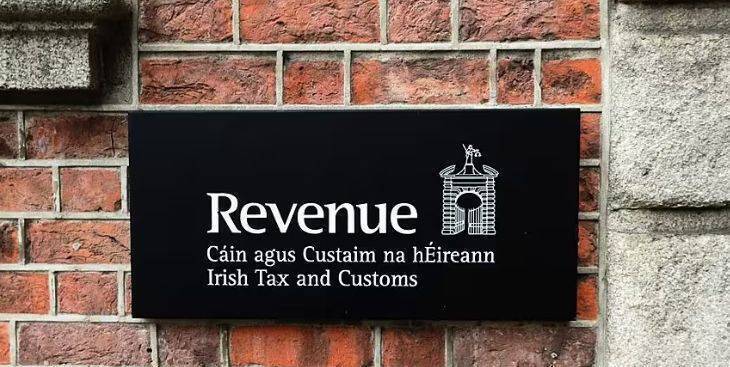Well… October. That certainly was a month. Here’s what we learned from those jam-packed 31 days.
1. Ireland increased its R&D tax credit rate.
Early in the month, it was announced by Finance Minister Paschal Donohoe that Ireland will increase the rate for its research and development tax credit, the very same one that is mainly used by foreign multinationals, to 35% from 30%. In the same announcement, Donohoe also committed to publishing a plan in the coming weeks, which will consider additional targeted changes to the regime, including potentially in the areas of outsourcing and qualifying expenditure definitions.
The relief allows businesses undertaking research in Ireland to claim back a percentage of the total costs of their activities in cash or against their corporation tax bill in annual instalments. Donohoe, a Fine Gael TD, went on to say that Government support for R&D activities is “critical to Ireland’s continuing competitiveness in a challenging global environment”.
2. FP’s Budget 2026 Report.
The new Budget came to town this month, an enlightening time for all in our industry. Fitzgerald Power Taxation Partner Brian Kelly drafted his own report for those looking for a complete rundown. Want a flavour? “Budget 2026 marks a shift in policy towards supporting business and enterprise, moving away from the cost-of-living measures that defined previous budgets,” he wrote.
“This shift comes as Irish SMEs face not only domestic challenges but also heightened international tax risks, particularly the introduction of new US tariffs on EU goods. These external pressures add uncertainty for exporters and supply chain-dependent businesses, making the government’s business-focused approach especially timely.”
Read the full report, for free, here.
3. All-island Apprenticeship for Certified Accounting Technologists launched.
In a landmark moment for education and cross-border cooperation, the first-ever all-island apprenticeship programme has been launched, marking a new chapter in how the island of Ireland develops talent for the future. The Accounting Technologist Apprenticeship, developed by ATI and delivered jointly by Technological University of the Shannon and The Open University in Northern Ireland, will “equip learners with cutting-edge skills in digital finance and sustainability, responding to the evolving demands of the sector,” according to the government press release.
Taoiseach Micheál Martin, Tánaiste Simon Harris and Minister for the Economy in Northern Ireland, Dr Caoimhe Archibald, were all there to officially launch the programme, one that they believed would bridge the gap between the traditional Accounting Technician and a fully qualified accountant. “The new All-Island Accounting Technologist Apprenticeship is a major step forward. It enhances our curriculum and prepares learners for the evolving demands of the accounting profession,” Minister Archibald said. “This programme directly addresses the rise of artificial intelligence and the growing need for sustainability reporting – skills now essential for modern accounting professionals.”
4. Inflation & Employment.
The latest flash estimate of the Harmonised Index of Consumer Prices (HICP), compiled by the CSO, indicates that prices for consumer goods and services in Ireland are estimated to have increased by 2.7% in the past year. Food prices are also estimated to have increased by 0.3% in the last month and risen by 4.6% in the last 12 months.
As per unemployment, the seasonally adjusted unemployment rate for all people aged 15-74 years in October 2025 was 5.0%, down from a revised rate of 5.1% in September 2025, and up from 4.2% in October 2024. (In October 2025, the unemployment rate for both males and females was 5.0%.)
5. The IMF released its October ‘25 World Economic Outlook, and the findings are… uncertain.
The global economy is adjusting to a landscape reshaped by new policy measures, so says the International Monetary Fund’s (IMF) World Economic Outlook for October 2025. In it, the fund projected global growth of just 3.2% in 2025 and warned of heightened risks from trade fragmentation and policy uncertainty.
“Risks are tilted to the downside,” it reads. “Prolonged uncertainty, more protectionism, and labor (sic) supply shocks could reduce growth. Fiscal vulnerabilities, potential financial market corrections, and erosion of institutions could threaten stability.”
Read in full here.
6. The first stage of a cease-fire deal between Israel and Hamas was approved.
On the 10th of the month, the first step in achieving a ceasefire in the Gaza-Israeli war was approved. According to analysts, the move was pushed on the Israeli side in an attempt to repair its image abroad following the two-year conflict. To date, the ceasefire is almost a month old, but reports say there is still fighting along the yellow line “almost every day”.
7. The Reuters Gulf Currents newsletter drops.
The team at Reuters launched their Gulf Currents newsletter this month. Headed up by excellent journalists, the aim is to break news on the region’s most important stories, geopolitical or otherwise. This month’s main offering came from Riyadh, where Saudi Arabia has just concluded its annual flagship investment event, the Future Investment Initiative (FII) conference. It also touched upon the new, homegrown Humain AI company and expansion plans for the company behind Riyadh’s Diriyah, Saudi Arabia’s Vision 2030, much, much more.
For the latest on geopolitics, energy and finance in the region. Sign up here.
8. Hurricane Melissa ravaged through the Caribbean and Atlantic.
The scale of the devastation left behind by Hurricane Melissa is only now becoming clear after the record-setting storm tore through Jamaica, Haiti and Cuba, leaving at least 34 people dead, according to the BBC. Despite being downgraded from a category five to a category two storm, the hurricane sustained winds of 298km/h (185 mph) at its peak, making it stronger than Hurricane Katrina, which devastated New Orleans in 2005, killing 1,392 people.
Across the wider Caribbean, homes and buildings were torn apart, trees were uprooted, and thousands were left without power. In Jamaica, the impact was most severe in the southwestern parish of St Elizabeth, where “knee-deep mud and washed-out bridges” left towns cut off.
9. M&A’s
This month included…
Energia Group acquired by Ardian
As per the Irish Times, Energia Group’s owner, US investment firm I Squared, has agreed to sell the Irish power company to French private equity firm Ardian. The transaction is expected to be completed in the first quarter of next year, subject to customary regulatory approvals, I Squared and Ardian said in a joint statement.
Alkermes acquires Avadel Pharmaceuticals
Later in the month, Alkermes and Avadel Pharmaceuticals announced that the companies had entered into a definitive agreement under which Alkermes will acquire Avadel, in a deal valued at up to $2.1 billion. The transaction has been approved by the boards of directors of both companies and is expected to close in the first quarter of 2026.
Sherry FitzGerald acquires Knight Frank Ireland
Commercial property group Knight Frank was acquired by Sherry FitzGerald for an undisclosed sum this month. The deal, which is subject to regulatory approval, was announced by CastleGate, the family office of technology entrepreneur Tommy Kelly, which acquired Sherry FitzGerald in 2022 for a figure reported to be around €50 million.
Alchemy acquired by NTT Data
Derry City-based software consultancy Alchemy Technology Services has been acquired by the Japanese communications giant NTT DATA. Founded in 2018 by John Harkin, Alchemy specialises in digital transformation and consultancy services for the global insurance industry. More details in Irish News.
In summary…
Well, between the Celebrity Traitors, the Andrew formerly known as Prince, the New York Mayor election, the Irish presidential election and everything else… It’s been quite a month for chaos. Perhaps nowhere more than in Fianna Fáil, where the Taoiseach has been picking up the pieces following the Jim Gavin debacle that cost the party the presidency. (Quick reminder to landlords out there: keep your friends close and your repayments to old tenants closer.)
There’s also been somewhat of a shake-up at RTÉ, with Claire Byrne, Joe Duffy and Ray D’Arcy leaving in quick succession, and fresh blood like Kieran Cuddihy entering the fray. Following nearly a full year of scandals, a number of which were centred on Ryan Tubridy, RTÉ has entered a new era, one focused on change and, sadly, an axed documentary department.
Finally, for those who thrive in chaos, Christmas is just around the corner (or if you’re Brown Thomas, it arrived some time ago.) Presuming the hottest toy for preteens is still prescription-strength makeup, you now officially have six weeks to get your excuses together. As for those looking to satiate the needs of the Labubu crowd, may God have mercy on your souls.
See you next month!
Our team is dedicated to providing you and your business with the absolute best business advice out there. We approach each and every case from a fresh perspective, working with you to find tailored solutions that leave your business feeling stronger than ever. With our expert analysis, we translate figures into a language you can understand. Using timely, reliable advice, our experienced team of experts devise sophisticated plans to encourage cost efficiency and growth. To find out more, contact our team at Fitzgerald Power today.





